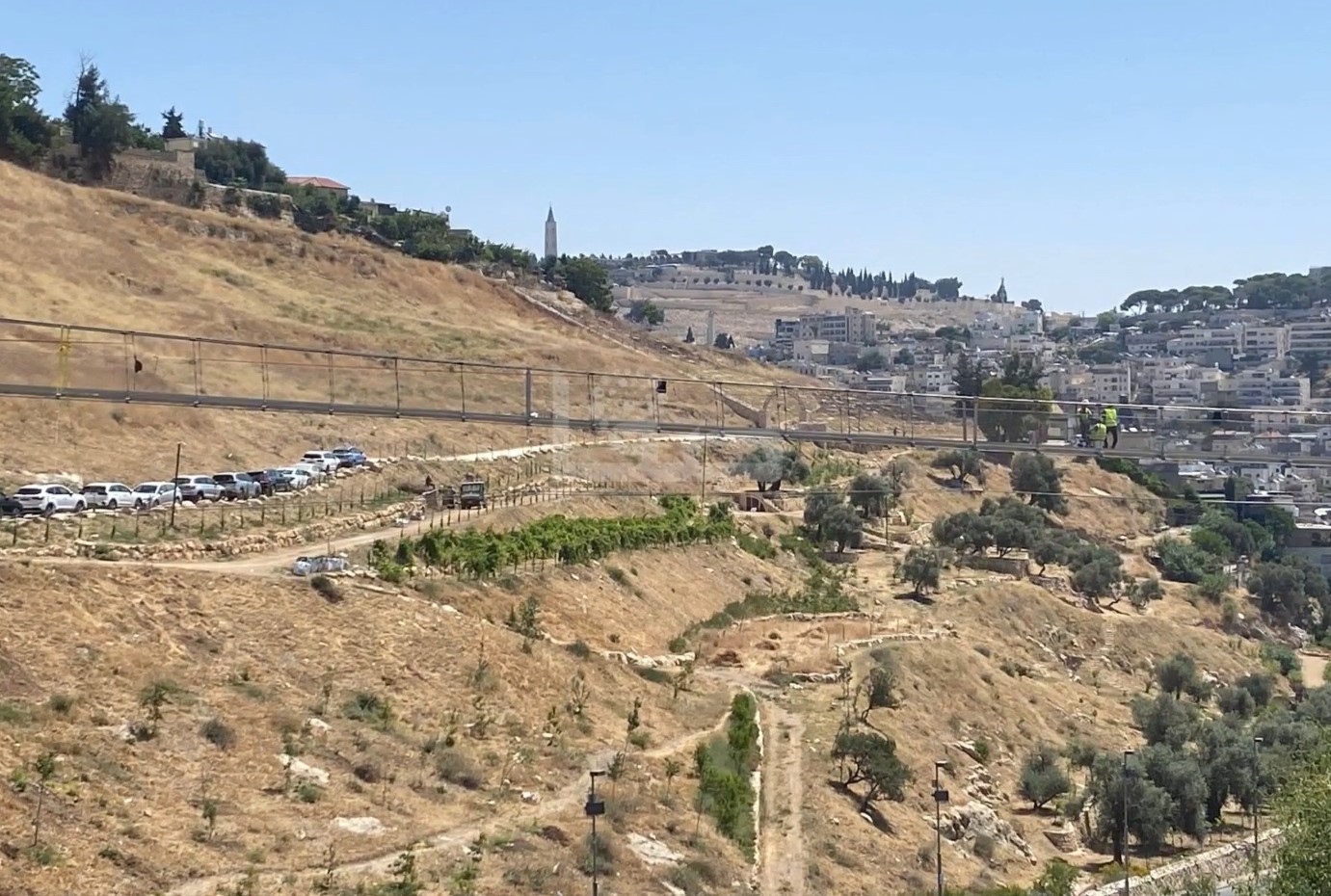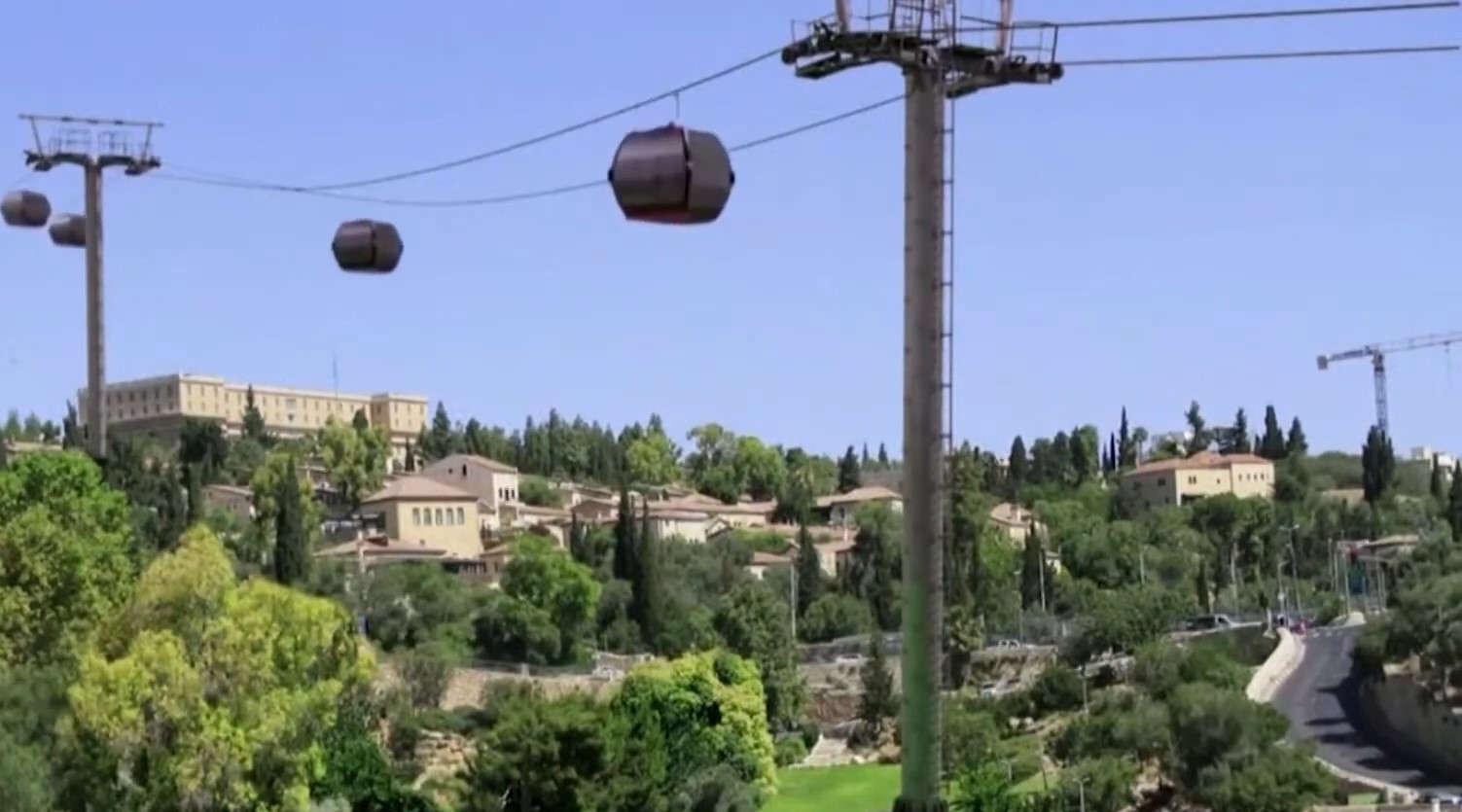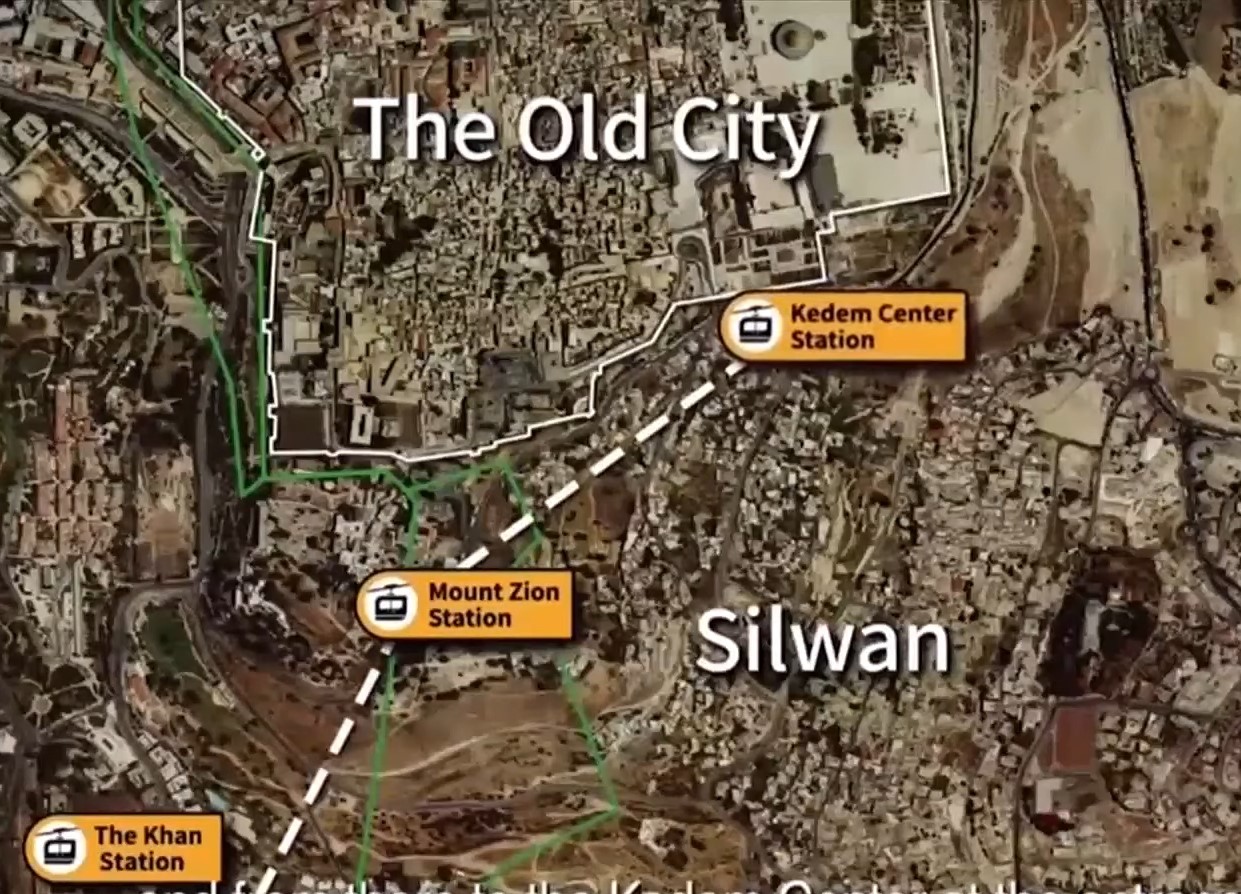Chairlifts
Almost two years after the Israeli government approved a project to build a cable car to connect the two parts of Jerusalem, the Israeli Supreme Court removed the last obstacle to the start of the implementation of the project, which the Palestinians strongly reject because "it changes the features of Jerusalem and completes the plan of its Judaization". The 1,500-meter-long cable car connects the Mount of Olives, east of Jerusalem, and the "Shamma" area, near the gate of Hebron, West of the city, passing through Al-Buraq Square and Silwan town, and the Mount of Olives is located in an area that is the highest in Jerusalem overlooking its Old City, and Jews believe that Christ the "Savior" will return from there to establish the temple of Solomon.

Sights of Jerusalem
According to the project, which costs 50 million dollars, the cable car will transport 3,000 people per hour on a four-minute journey in the vicinity of the markets of the Old City of Jerusalem, and a year after the occupation of East Jerusalem, the United Nations Educational, Scientific and cultural organization (UNESCO) called on Israel "to refrain from conducting any excavations in the city or changing its landmarks or cultural features". UNESCO condemned Israel for" changing the historical and cultural monuments of Jerusalem and its Judaization, " and put the city of Jerusalem and its walls on the list of World Heritage in danger.

The construction of the "cable car" project was opposed, along with the Palestinians, by Israeli leftist groups and other defenders of cultural rights and the environment, and they formed a coalition to oppose it. The coalition said that the cable car "will deal a fatal blow to historical monuments and will change the route of tourist visits, harming Palestinian merchants in the Old City," as the Israeli human rights movement "Peace Now" said that the project will turn Jerusalem into Disneyland, calling on the Israeli government to stop it.

Demolition of real estate
The minister of Jerusalem affairs in the Palestinian government, Fadi al-hadmi, considered that the implementation of the project constitutes " an attempt to distort the Arab and Palestinian landscape of the city and change its authentic features, and will lead to the demolition of real estate and the seizure of Palestinian land," adding that the cable car is "an attempt to hit the Palestinian economy in Old Jerusalem. "The settlement project flouts international resolutions related to east Jerusalem, including UNESCO resolutions," Al-hadmi explained, but Israeli Jerusalem Mayor Moshe leyonan welcomed the Israeli Supreme Court's giving the green light for the construction of the cable car, adding that it would lead to "easing traffic pressure and easy access to the Western Wall and the city of David". He pointed out that the project "will serve all the residents of the entire Jerusalem and its visitors who will enjoy its operation".
